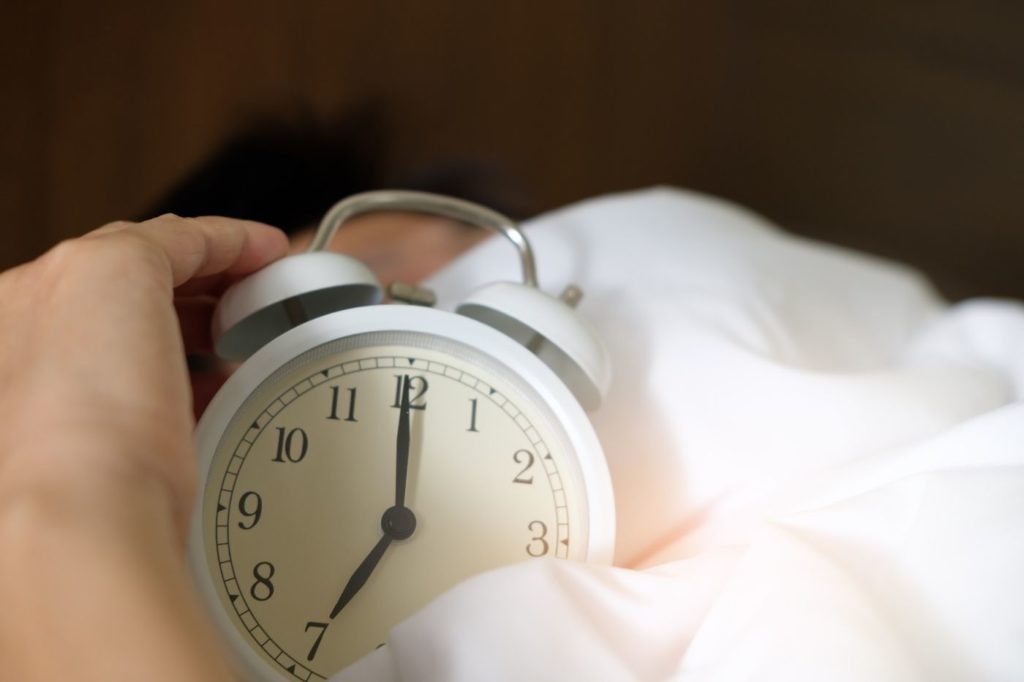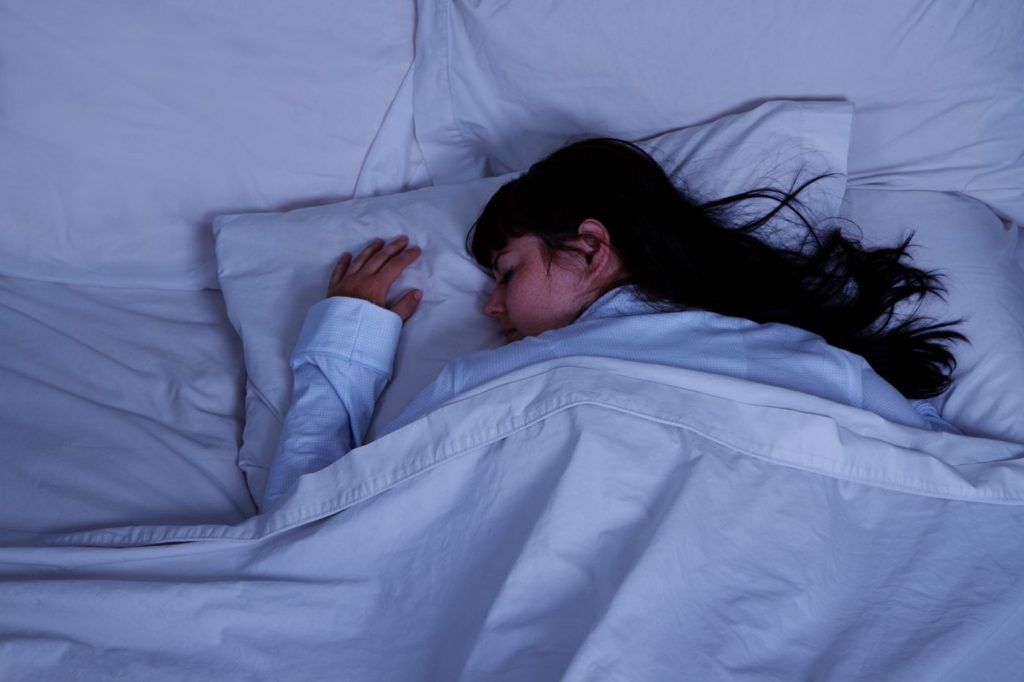We hear a lot about the circadian rhythm, biological clocks, and optimal schedules for things like eating and working out. It seems like every few years, there’s a new health trend based on what time we do something (I’m looking at you, intermittent fasting).
Lately, wellness experts have even uncovered the natural skin cycle that defines how your skin regenerates on a schedule of sorts.
As it turns out, this fascination with natural rhythms has been going on for centuries in China. In fact, Traditional Chinese Medicine takes tracking body rhythms to a whole new level.
If this is news to you, allow me to introduce you to the Chinese Body Clock.
What is the Chinese body clock?
The Chinese body clock is a timeline of when energy moves through different organ systems at specific times of the day based on the movement of qi.
An integral part of Chinese philosophy, qi refers to “vital energy,” be that energy physical, mental, or even emotional. Pretty much everything in Traditional Chinese Medicine (TCM) centers on qi, including the body clock.
The clock is divided into 12 2-hour periods, each one corresponding to a different organ at its highest energy level. According to TCM, each organ has a substantial window of peak performance every day.
While research is relatively new in this area, it does seem that the tenets of Traditional Chinese Medicine, such as the body clock, may significantly impact the health of your skin.
How does the Chinese body clock work?
Qi travels along pathways through the body called meridians. The human body has 12 major meridians, each one connected to a different organ.
As energy moves from one meridian to another, the organs corresponding to those pathways become invigorated. These pathways are also how acupuncturists know where to aim.
Let’s take a look at what our internal organs are doing in each 2-hour interval.
Early Morning
Lungs — 3:00-5:00 a.m.
According to TCM, the lungs are responsible for moving qi and regulating moisture within the body. As we inhale and exhale, qi is moved up and down along its meridians.
In these wee hours of deep sleep, lungs reach their peak energy, suggesting higher respiratory function. Breathing exercises and workouts are great ways to take advantage of this energetic window.
Large Intestine — 5-7 a.m.
The large intestine is a crucial player in our bodies’ waste elimination. As such, it plays host to some heavy-duty microbes: roughly 70% of your immune system is found in your gut.
We know there’s a connection between the lower gut and skin. In fact, the correlation between gut health and skin health is so prominent that it is referred to as the gut-skin axis.
While there has been less research on the skin microbiome, studies so far have suggested links between various gut issues and skin disorders — acne, psoriasis, and rosacea, to name a few.
TCM names this early morning window as the lower intestine’s higher energy window. In addition to being the optimal time for a bowel movement, this peak energy would suggest a surge in the immune system.
Morning
Stomach — 7:00-9:00 a.m.
The stomach is in charge of assimilating food and sending it along other digestive byways. In TCM, it is also in charge of qi’s descending movement, helping it along downward paths.
TCM suggests eating the largest meal of the day in this window, as qi travels through the stomach’s meridian. Interestingly, this means the stomach is weakest from 7-9:00PM, meaning a light dinner is best.
This gives support to the idea that breakfast is still the most important meal of the day!
Spleen — 9:00-11:00 a.m.
TCM sees the spleen as the key organ in digestion. It is where nutrients go to be converted into blood, body fluids, and qi. TCM says that the spleen first converts nutrients into qi, then forces it upward toward the lungs and heart.
Afternoon
Heart — 11:00 a.m. to 1:00 p.m.
The heart is the center of both physical and spiritual vitality.
This organ not only pumps blood throughout our bodies but is also the seat of shen. Shen is most closely translated as “spirit,” but also refers to thoughts and emotions, or consciousness. In TCM, the amount of shen present is usually a part of prognoses for illnesses.
Thanks to the uptick in energy at this time, both circulation and mental well-being reach a high.
Small Intestine — 1:00p.m. to 3:00 p.m.
As qi moves into the small intestine, it is thought that heavier meals are digested more easily.
A dysbiosis of the gut microbiome can lead to SIBO (small intestinal bacterial overgrowth). This small intestinal dysfunction is associated with both leaky gut and rosacea.
Pro tip: If you experience adrenal fatigue or other low energy issues, the function of your large and small intestines may be closely connected with your symptoms.
Bladder — 3:00 to 5:00 p.m.
The bladder deals with your body’s hoarding of water during this time by eliminating urine. If you haven’t kept yourself adequately hydrated, you may experience a crash.
It may also be beneficial to have something salty, such as soup or broth, to get your bladder functioning at peak performance. If your bladder isn’t working correctly, it can cause skin rashes.
Evening
Kidney — 5:00-7:00 p.m.
The kidney and bladder work in tandem to eliminate unwanted waste from the body. The kidneys purify the blood, and if they are working at their full potential, your energy levels should be high.
Pericardium — 7:00-9:00 p.m.
The pericardium is thought to be the guardian of the heart. It helps support our heart function, regulates qi to fight things nausea, and provides a physical barrier against potential shock from energy changes.
Because this time of day is when the pericardium is at its peak, taking a bath, gentle stretching, meditating, reading, and relaxing can maximize its potential for maintaining peace.
Triple Burner — 9:00 p.m. to 11:00 p.m.
The “triple burner” describes the metabolic and endocrine systems. Your adrenal glands and thyroid are most affected shortly before bedtime, and the body is at its peak in producing heat. The triple burner period is also when the pancreas functions most optimally.
This is the body’s moment to tweak homeostasis. Since these systems are basically set on autopilot, this is an excellent time to get a good night’s sleep and let your qi do its thing.
Night
Gallbladder — 11:00 p.m. to 1:00 a.m.
Your gallbladder does a myriad of things. It excretes bile, helps you digest good fats, and helps build and repair both new and damaged cells.
In TCM, it is thought to pull blood from sinews to pass to the liver to support detox. This little powerhouse is also regarded as a pivotal organ, representing the transition from day to night and yin time to yang time.
Liver — 1:00 a.m. to 3:00 a.m.
The liver has a few jobs, most prominently storing and cleansing blood and providing a detoxification center for the body. Traditional Chinese Medicine postulates that it also stores and regulates qi and body fluids.
The liver is also connected to emotional well-being. It is recommended to eat lighter meals at the end of the day and avoid too much alcohol, so the liver can perform not only its physical duties but its energetic ones as well during this time.
Sources
- Koo, J., & Arain, S. (1998). Traditional Chinese medicine for the treatment of dermatologic disorders. Archives of Dermatology, 134(11), 1388-1393. Abstract: https://pubmed.ncbi.nlm.nih.gov/9828872/
- Baroni, A., Ruocco, E., Russo, T., Piccolo, V., Geng, L., Zhou, H., Chen, H. D., & Gao, X. H. (2015). The use of traditional Chinese medicine in some dermatologic diseases: Part I–Acne, psoriasis, and atopic dermatitis. Skinmed, 13(1), 32–39. Abstract: https://pubmed.ncbi.nlm.nih.gov/25842471/
- Bowe, W. P., & Logan, A. C. (2011). Acne vulgaris, probiotics and the gut-brain-skin axis-back to the future?. Gut pathogens, 3(1), 1-11. Full text: https://www.ncbi.nlm.nih.gov/pmc/articles/PMC3038963/
- Salem, I., Ramser, A., Isham, N., & Ghannoum, M. A. (2018). The Gut Microbiome as a Major Regulator of the Gut-Skin Axis. Frontiers in microbiology, 9, 1459. Full text: https://www.frontiersin.org/articles/10.3389/fmicb.2018.01459/full
- Tianxing Zhang, Long Yan, Shilei Ma, Juan He, Human biological rhythm in traditional Chinese medicine, Journal of Traditional Chinese Medical Sciences, Volume 3, Issue 4, 2016, Pages 206-211, ISSN 2095-7548. Abstract: https://www.sciencedirect.com/science/article/pii/S2095754816301028
- Vighi, G., Marcucci, F., Sensi, L., Di Cara, G., & Frati, F. (2008). Allergy and the gastrointestinal system. Clinical and experimental immunology, 153 Suppl 1(Suppl 1), 3–6. Full text: https://www.ncbi.nlm.nih.gov/pmc/articles/PMC2515351/




